Happy 89th birthday to the former Congressman from Texas, Dr. Ron Paul. Before serving three terms as representative of the 22nd and 14th Congressional districts, the country doctor delivered an average of 1 baby per day, amounting to over 4,000 little ones because he was the only OB/GYN in Brazoria County. READ more about America’s most famous Libertarian… (1935)
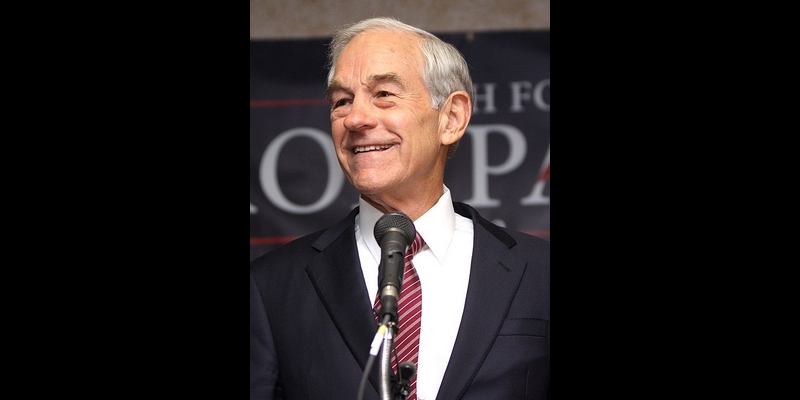
Ron Paul was a major voice in the early 21st century for those who warned against the dangers of government overreach in matters of war, civil liberties, privacy, and monetary freedom.
His 1988 presidential platform included non-interventionism in foreign conflicts, decriminalization of illegal drugs on a federal level, a return to the gold standard, and the abolition of both the Federal Reserve and the military draft.
Paul waged several presidential campaigns, all within the Republican party as a means of spreading his Libertarian message. In 2004, he became famous for the “Giuliani Moment” when former Mayor of New York City Rudy Giuliani demanded that Dr. Paul apologize for antiwar comments he had just made in relation to the then-ongoing war in Iraq. Paul did not apologize, and instead, delivered a counterargument based on an appeal to reason and the lessons of history. Watch his heartfelt responses below…
MORE Good News On This Day
- British Prime Minister Winston Churchill paid tribute to the Royal Air Force, saying, “Never in the field of human conflict was so much owed by so many to so few,” as pilots were fighting the Battle of Britain, a pivotal air battle with the Germans to halt a Nazi invasion (1940)
- Senegal broke from the Mali federation and declared independence (1960)
- US President Lyndon Johnson signed a nearly $1 billion anti-poverty measure (1964)
- Estonia, the country where video conferencing tool Skype was developed, claimed independence after being occupied by the Soviet military for over 50 years (1991)
- After rounds of negotiations in Norway, the Oslo Peace Accords were signed (1993)
142 years ago today, Pyotr Ilyich Tchaikovsky’s 1812 Overture debuted in Moscow. While the 1812 Overture debuting in 1882 may make it seem strangely named, the piece was to commemorate the successful Russian defense against Napoleon I’s invading Grande Armée in 1812. The 15-minute overture is best known for its climactic volley of cannon fire, ringing chimes, and a brass fanfare finale. It has also become a common accompaniment to fireworks displays on the United States’ Independence Day, ironically enough.
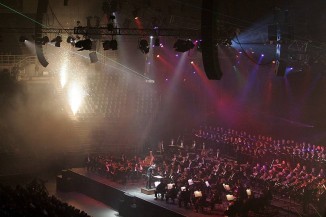
The Cathedral of Christ the Savior, commissioned in 1812 by Tsar Alexander I to commemorate the Russian victory over Napoleon, was nearing completion in Moscow in 1880; the 25th anniversary of the coronation of Alexander II would be at hand in 1881; and the 1882 All-Russia Arts and Industry Exhibition at Moscow was in the planning stage. Tchaikovsky’s friend and mentor Nikolai Rubinstein suggested that he write a grand commemorative piece for use in related festivities. Tchaikovsky began work on the project on 12 October 1880, finishing it six weeks later.
Organizers planned to have the overture performed in the square before the cathedral, with a brass band to reinforce the orchestra, the bells of the cathedral, and all the others in downtown Moscow playing “zvons” (pealing bells) on cue—and cannons, fired from an electric switch panel to achieve the precision the musical score required. However, this performance did not take place, possibly due in part to the over-ambitious plan. Regardless, the assassination of Alexander II that March deflated much of the impetus for the project. In 1882, during the All-Russia Arts and Industry Exhibition, the Overture was performed in a tent next to the unfinished cathedral.
Meanwhile, Tchaikovsky complained to his patron Nadezhda von Meck that he was “… not a conductor of festival pieces,” and that the Overture would be “… very loud and noisy, but [without] artistic merit, because I wrote it without warmth and without love.” He put it together in six weeks. It is this work that would make the Tchaikovsky estate exceptionally wealthy, as it is one of the most performed and recorded works from his catalog. (1882)
138 years ago today, the Second Salon exhibition by the ‘Society of Independent Artists’ opened in Paris, dominated by Georges Seurat’s A Sunday Afternoon on the Island of La Grande Jatte, an immense painting that virtually launched the Neo-Impressionist movement.
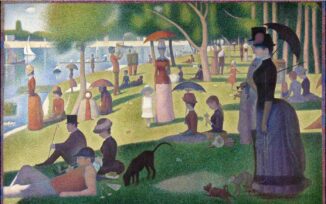
Seurat’s most famous work took him almost two years to complete, using his pointillist technique of tiny dots and brush strokes, upon a canvas measuring 7 by 10 feet (2×3 meters).
With the composition—which depicts Parisians at a park on the banks of the River Seine— Seurat was immediately acknowledged as the leader of a new and rebellious form of Impressionism called Neo-Impressionism.
Seurat had been a founder of the Société des Artistes Indépendants two years earlier, along with Cézanne, Gauguin, Toulouse-Lautrec, Pissarro, and others. As a painter, Seurat wanted to make a difference in the history of art, and with La Grand Jatte, now held in the collection of the Art Institute of Chicago, many say that he succeeded. (1886)
103 years ago today, WWJ Radio began broadcasting in Detroit, Michigan. Claiming to be the place where “commercial radio broadcasting began,” WWJ began with the daily “Detroit News Radiophone” established in the newspaper’s headquarters building and operating under an amateur radio license with the call sign “8MK”.
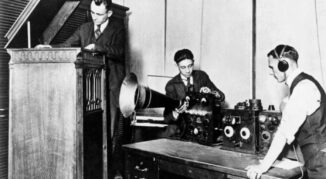
In 1902 Thomas E. Clark began supplying vessels in the Great Lakes region with radio, and requested financing from the Detroit News to build a powerful radio station. Most radio transmissions at this time were still being sent with the dots-and-dashes of Morse code, but eventually, William E. Scripps, the then-publisher of the Detroit News, embraced the breakthrough development of vacuum-tube transmitters and determined they could reach a large audience—and they did. (1920)
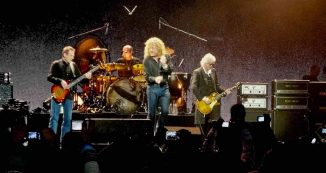
Happy 76th Birthday to singer-songwriter Robert Plant, whose 4th album with Led Zeppelin (which included Stairway to Heaven) sold more than 37 million copies. The charismatic rock-and-roll frontman with his powerful and wide vocal range was ranked #15 on Rolling Stone magazine’s Greatest Singers of All Time list. He also scored a Grammy win for his 2007 album Raising Sand with Alison Krauss. (1948)

Happy 70th Birthday to Al Roker, the American television personality, co-host, and weather anchor on NBC’s Today. In 2014, Roker set the Guinness World Record for uninterrupted live weather reporting after 34 hours of continual forecasts—and the Today Show Plaza was officially named the ‘Rokerfeller Plaza’ in his honor. Born in Queens, New York, he is the author of several cook books and history books on flood disasters; and a 2014 book about changing his life as he shed 160 pounds—Never Goin’ Back: Winning the Weight Loss Battle For Good. (1954)

And, on this day in 1977, NASA launched Voyager 2 towards Jupiter, Saturn, Uranus & Neptune. Still in operation today after 41 years, it is the only spacecraft to have visited either of the latter two ice giants. It is currently studying the outer reaches of the Solar System, and remains in contact with the U.S. through the Deep Space Network operated in cooperation with Australia and Spain. WATCH a NASA 40th Anniversary video…
SHARE the Milestones, Memories, and Music…



















